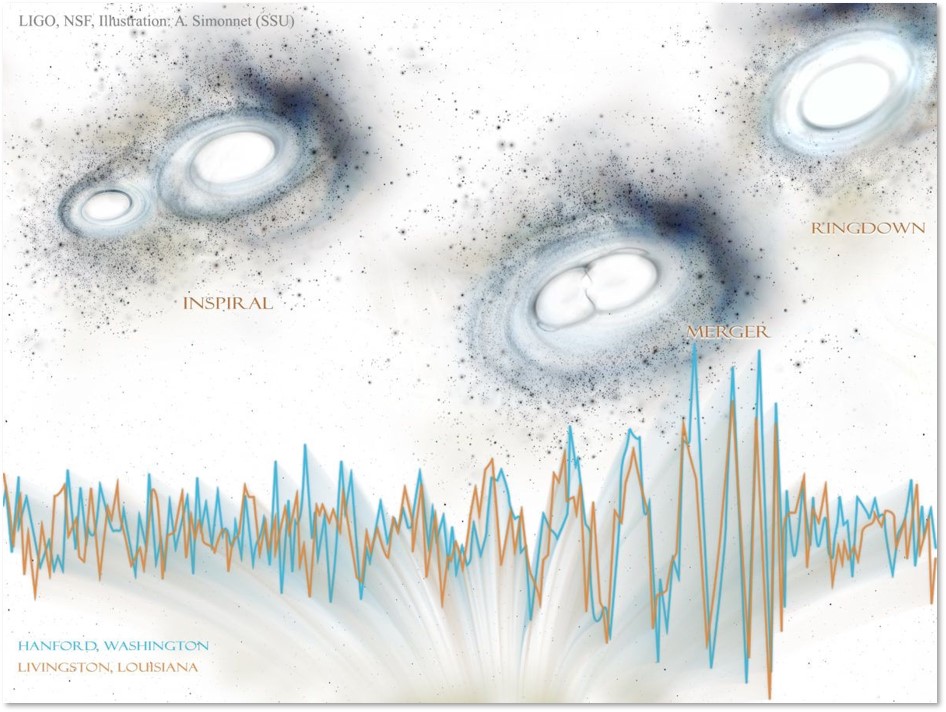Fourth MaNiTou Summer School on Gravitational Waves:
A new window to the Universe

MaNiTou summer school
The school is collaboratively organized by scientific communities involved in Gravitational Waves, from 3 French locations in Southern France, namely Marseille, Nice and Toulouse, thus the MaNiTou name for the school.
The school will take place in Marseille this year, on the Luminy Campus of Aix Marseille Université, in the beautiful Calanques National Park (see here). It will be held in English.
Goals of the school
The school will cover the emerging field of gravitational wave detection and of its scientific exploitation. Following their discovery by the LIGO/Virgo consortia, many other gravitational wave detections are expected at the existing and future gravitational antennas. They will open up a new window of exploration, sometimes unique and sometimes complementary to what other messengers such as electromagnetic radiation (radio, IR, visible, UV, X-rays, gamma rays) and neutrinos can reveal of the physics at work in our Universe. The objective of the school is to provide the students with a solid introduction to most aspects of this interdisciplinary field in accelerated expansion :-)
The school is open in priority to Master and PhD students, and also to young or not so young scientists who would like to get better acquainted with Gravitational Waves.
For attendees to fully benefit from the school programme, it is highly recommended that they have had at least an introductory exposure to General Relativity before. We also strongly suggest that prior to attending the school, the participants read some of the references that can be found here.
School organization
In order to make the School efficient for the attendees in terms of knowledge transfer and training interaction with the scientists in charge of the different activities of the school, the attendance is limited to about 80 to 90 participants, not including organizers and teachers. If more than 90 people apply to the School, a selection will be applied based on the criteria outlined on the Registration page.
The School has no online attendance option. All participants are expected to attend in-presence.
No fee is required to attend the School.
The School will provide coffee breaks and lunches to all participants. Dinners, travel and accommodation expenses are not covered.
However, accommodation free of charge will be provided at CROUS at Luminy Campus for up to 50 master and PhD students who request it in the registration form. For more information about this opportunity and the selection, please see the Accommodation Section on this webpage.
Moreover, since the school is labelled by CNRS as "Ecole Thématique", the expenses to attend the school for CNRS employees (staff CNRS people and people with a CNRS term contract [PhD student, Postdoc,...]) will also be covered. Please do not forget to mention in the registration form if that case applies to you!
Poster sessions
Posters sessions will be organized during the school so that the attendees can display posters describing their research work and results and discuss them with the other school participants.
Apply to the school - closed
To apply, please go to the Registration (Inscription) tab or directly follow the link here
Pre-registration will be open from March 4th to April 6th.
The pre-registered candidates will be informed of the result of the selection process during the first week of May.